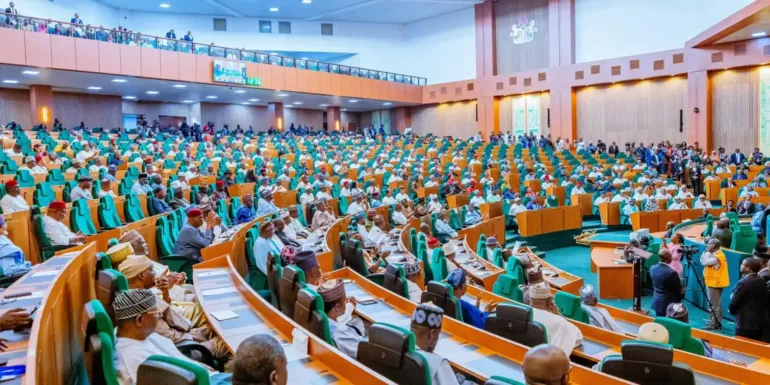The House of Representatives on Tuesday held a special plenary session dedicated to national security as the country grapples with rising incidents of kidnappings, terrorism, and communal violence.
A parliamentary delegation from St. Kitts and Nevis, led by the Speaker of its National Assembly, Lanein Blanchette, as well as officials from the United States Embassy, were admitted into the chamber to observe the session.
During the sitting, the House is expected to receive a consolidated Internal Assessment Report prepared by relevant committees. The report covers security incidents and trends, oversight findings, implementation of previous resolutions, and detailed presentations from committees on Defence, National Security and Intelligence, Police Affairs, Human Rights, Interior, Foreign Affairs, Women Affairs, Youth Development, and Emergency and Disaster Preparedness. At the end of deliberations, lawmakers are expected to issue a formal resolution outlining agreed actions, timelines, and oversight mechanisms.
In his opening remarks, Speaker Tajudeen Abbas reaffirmed that “Nigeria’s sovereignty is not negotiable,” while acknowledging the country’s longstanding relationship with the United States. He said the House welcomes opportunities for deeper collaboration with the US to address security concerns. Abbas also noted that the legislature is reviewing the Religious Freedom Accountability Bill, adding that both Christian and Muslim communities have been targeted by terrorist groups. He further expressed concern over the recent spate of military coups in West Africa, warning that they pose a grave threat to regional stability.
Deputy Speaker Benjamin Kalu stated that within the next six months, the House intends to pass legislation that will prohibit ransom negotiations, introduce criminal penalties for government officials who negotiate ransom or approve unstructured amnesty deals, and establish clear criteria for disarmament and deradicalisation. He also called for an investigation into alleged negotiations and ransom payments reportedly made to bandits by government officials.
Tuesday’s session comes amid worsening insecurity across Nigeria, with recent mass abductions of students and worshippers dominating headlines. In Kebbi and Niger states, gunmen abducted schoolchildren, prompting several northern states to close schools as a precaution. Opposition figures have criticised the Tinubu administration for failing to adequately protect citizens, urging the government to prioritise security and restore public trust.
Last week, the US Congress held a public hearing following President Donald Trump’s redesignation of Nigeria as a Country of Particular Concern (CPC). During the hearing, victims, lawmakers, and security experts testified about rising insecurity, including widespread kidnappings, the destruction of homes, and the killing of hundreds of Nigerians in recent years.


